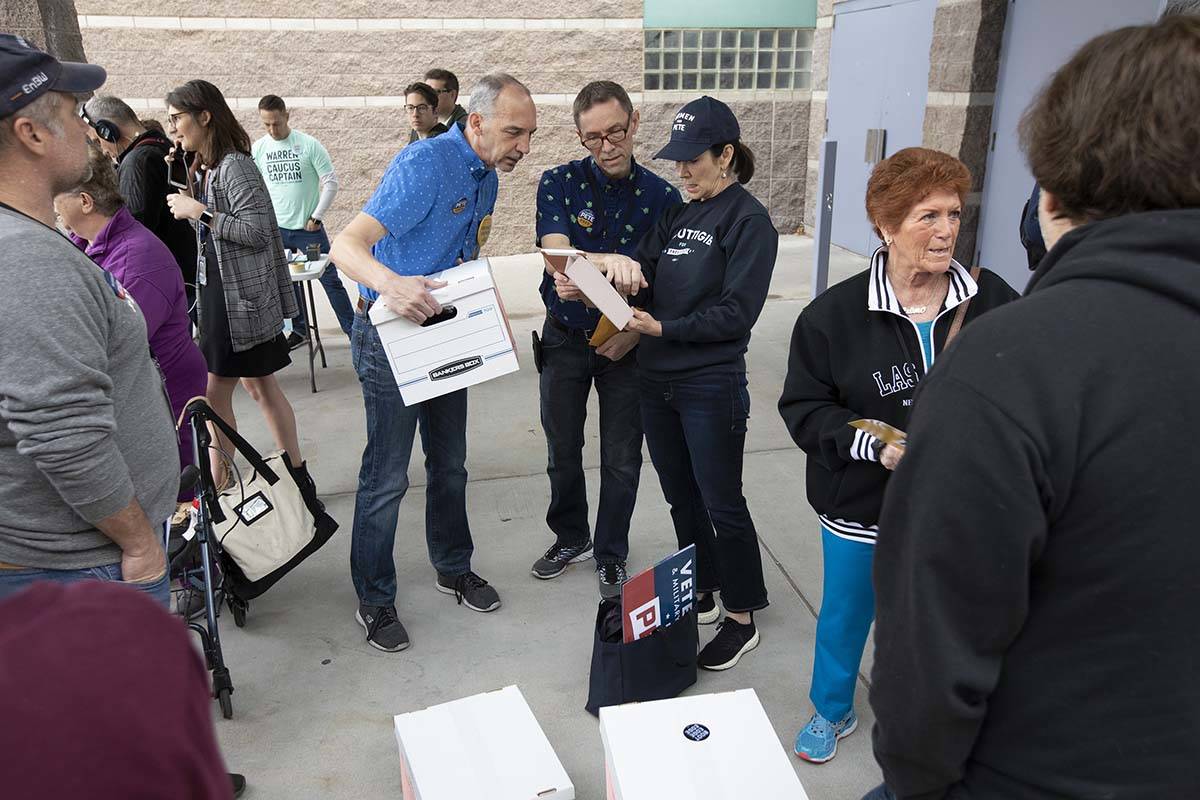Nevada may ditch caucuses in favor of presidential primary

Nevada Democrats on Monday unveiled a bill that would kill the state’s presidential caucuses in favor of a primary system, a move that comes as the state is angling to be the first in the nation to weigh in on presidential nominees.
Assembly Bill 126 would do away with Nevada’s caucus system, which has been in place for deciding each major party’s presidential nominee since 1981, and create a presidential primary that would be held on the second-to-last Tuesday in January. The primary election for state and local offices would still be in June.
Assembly Speaker Jason Frierson, D-Las Vegas, told reporters Monday that it became clear after the 2020 presidential caucuses that the process wasn’t leading to increased participation, especially for the elderly and those with disabilities.
New Hampshire has fought to maintain its status as the site of the nation’s first presidential primary. The secretary of state there has the authority to change the date of the New Hampshire primary to ensure its contest is held before any other state’s.
Democrats in the Silver State argue that Nevada, with its growing and diverse population and strong union presence, should have the first say. The move has the backing of some the state’s most influential Democrats, including former longtime U.S. Sen. Harry Reid.
“Nevada has been a better barometer for where the country is going,” Frierson said. “This is actually giving candidates an opportunity to make their case before the type of voters I think they’re going to be facing across the country.”
Frierson said that there is no rush to get the bill moving through the 120-day Legislature and that Nevada Democrats plan to continue having conversations with the Democratic National Committee as well as local officials in other early-voting states.
AB 126 was one of several election-related bills introduced Monday. Several, sponsored by Republican lawmakers, have little chance of advancing in the Democrat-controlled Legislature.
Assembly Bill 121: Would allow disabled people to register to vote and cast their votes electronically, as certain voters in the military or overseas may do now.
Assembly Bill 129: A Republican-sponsored bill that would tighten financial reporting requirements for PACs, reducing thresholds for reporting individual contributions to $100 from $1,000, the same threshold now in place for individual candidates.
Assembly Bill 134: A Republican-sponsored bill aimed at rolling back provisions of a bill passed in special session last summer that expanded vote-by-mail and other balloting provisions due to the coronavirus pandemic.
Assembly Bill 137: A Republican-sponsored bill requiring voters to show ID when voting in person.
Senate Bill 85: A Republican-sponsored bill that would allow for write-in candidates, currently prohibited under state law.
Senate Bill 101: Another Republican-sponsored bill, it would allow voters to request that elections officials confirm their identities with a photo ID when voting in person.
Senate Bill 121: A Republican-sponsored bill, it would create open, ranked-choice primary elections where all candidates, including minor-party and independent candidates, appear on the same ballot, with the top two finishers advancing to the general election regardless of party.
Contact Capital Bureau Chief Colton Lochhead at clochhead@reviewjournal.com. Follow @ColtonLochhead on Twitter. Contact Capital Bureau reporter Bill Dentzer at bdentzer@reviewjournal.com. Follow @DentzerNews on Twitter.